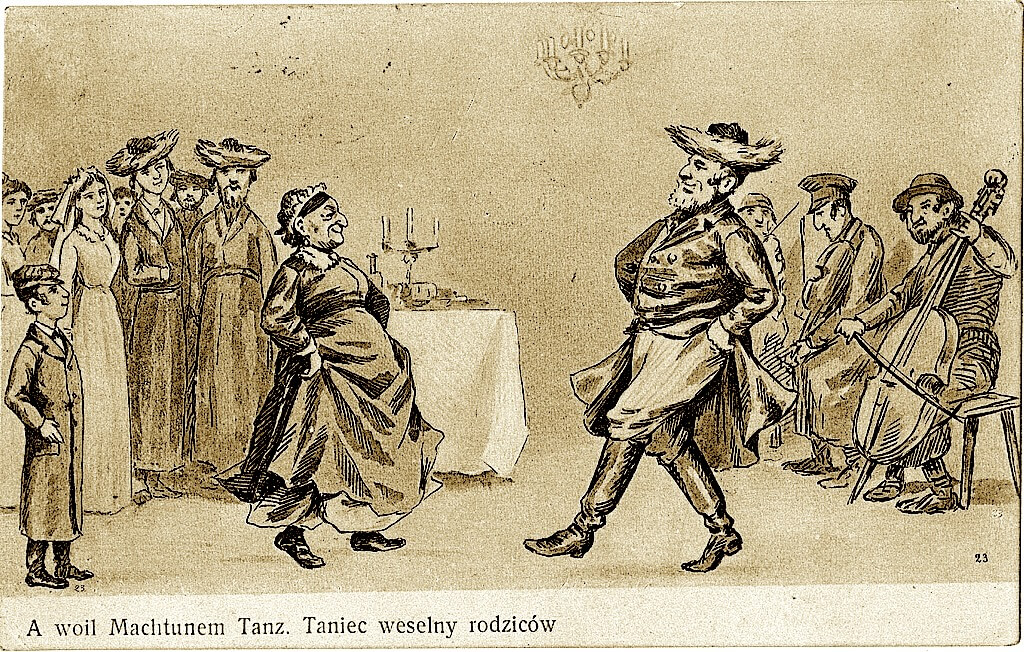My touching – and funny – moments with Forverts obituaries

Image by Getty Images
When I first began working at the Forverts in the year 2000, I had already missed out on the old traditions of typesetting and printing; the reign of the digital world had begun.
But tucked away in the corners of the hall where the typesetters once worked, remained artifacts of yesteryear: the telegraph ticker tape machine that once received the latest news from around the world. (The Forverts, of course, was once the prime source of world news for hundreds of thousands of Jews.) In another corner, stood an illuminated glass table, in the days when proofreading the galleys often required literally cutting and pasting, using scissors and glue.
The editorial staff, by that time, was thirty years removed from working in the landmark Forverts building on the East Side, and now owned a property not far from the Empire State Building. (I’m told that Harper & Row had once rented space in the building.)
Although I never worked in the old Forverts building on East Broadway, I was somewhat familiar with it because the Folksbiene Theater rented the auditorium there. In the 1960s and the start of the 1970s, my parents and I never missed the annual Folksbiene plays. After the show, we would dine at the iconic Garden Cafeteria at the corner, where Forverts writers and journalists like Isaac Bashevis Singer often congregated for lunch and dinner.
Among my tasks at the Forverts was editing the page, “Letter to the Editor,” which included paid death announcements and other personal classified ads. Readers would dictate the text to me over the phone or snail-mail me the hand-written text. I would type it onto the computer screen and the typesetters assembled the classifieds onto the Forverts pages.
Many readers, year in, year out, would ask us to publish yahrzeit notices of their loved ones, often using the same text from previous years, altering only the number of years that had passed since the loved one’s death. For example, we’d change “the third yahrzeit” to “the fourth yahrzeit.” Every year, Yiddish actress Mina Bern would call to remind us to refresh the memorial notice for her late husband, actor Ben Bonus. Her text also included a photo of him, captioned with the words “three years alone” or “four years alone”, increasing the number every year to match which yahrzeit it was.
One year, I got a phone call from Mina about an error we had made: although we had changed which yahrzeit it was, we had neglected to change the number of years she was alone, so the ad read: “Marking the fifth Yahrzeit of my husband Ben Bonus – four years alone.” Laughing she said: “Itzik, if only that were true!”
Once, another reader called asking to place his own obituary in the newspaper. He claimed that his children were so alienated from the Yiddish world it wouldn’t occur to them to place their father’s death announcement in a Yiddish newspaper. I advised him that this was not the Jewish way and wished him many healthy years ahead.
During the first five years of my working there, we often received long hand-written letters from readers: their memories of the Old Country, Holocaust experiences – described with emotion and flair. But after a while the letters stopped coming and we ended the Letter to the Editor column. To be sure, the growing world of computers influenced this, but it was also a sign that the older generation was disappearing.
During my years at the Forverts, there were several Hasidim working with us – some as proofreaders, others doing the technical task of typesetting. One such typesetter, a Gerer Hasid, had worked for the Forverts for about thirty years. But when I once went to buy a talis (prayer shawl) in a Brooklyn store owned by a Gerer Hasid, I discovered that everyone there knew him well, but none of them had any idea that he worked for the Forverts! Apparently, his job at a secular newspaper could have harmed his reputation.
Another Hasid on staff was our Lubavitch proofreader, Yehoshua Dubrovsky, who had permission from the Rebbe to work at the Forverts. Dubrovsky was a kind man, a “true” Lubavitcher, meaning that he had been a Lubavitcher in Europe. We got along well, but here and there I needed to take a stand against his editorial decisions. In one article, for example, the author had written the name of Jesus in it. Dubrovsky called me into his small office and said: “We don’t write such things.” “So what do we write?” I asked. He answered “Oso ha-ish” (“that man”). I replied that this might be how things are done in the Orthodox community, but the Forverts is a secular newspaper, “so please keep the name Jesus in there.”
Dubrovsky stayed at the Forverts for many years. It was through him that I learned many of the old traditions in the field of Yiddish journalism. For example, English words in Yiddish were spelled exactly as they were in English, and not according to the way people pronounced them. So Connecticut was spelled as “Konektikut” and Lincoln was spelled “Linkoln.”
In those years I occasionally lectured on Yiddish folklore across the country. After each lecture, elderly people would approach me and recall what excitement there would be in their homes when their parents received the Forverts – whether in Chicago, Philadelphia, Los Angeles, Detroit, or Milwaukee. With the cessation of the printed newspaper, came the end of an important chapter in Yiddish cultural history.
A message from our Publisher & CEO Rachel Fishman Feddersen

I hope you appreciated this article. Before you go, I’d like to ask you to please support the Forward’s award-winning, nonprofit journalism during this critical time.
At a time when other newsrooms are closing or cutting back, the Forward has removed its paywall and invested additional resources to report on the ground from Israel and around the U.S. on the impact of the war, rising antisemitism and polarized discourse.
Readers like you make it all possible. Support our work by becoming a Forward Member and connect with our journalism and your community.
— Rachel Fishman Feddersen, Publisher and CEO























